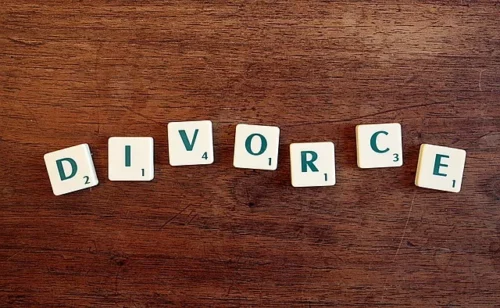“Ah, yes, divorce … from the Latin word meaning to rip out a man’s genitals through his wallet.”
– Robin Williams

It seems like in every large city, there’s one divorce attorney who owns the market on billboards and bus stop signs. There’s one in the Fort Worth area. It’s impossible to drive more than a couple of miles down the interstate without seeing one of his signs. What’s his biggest selling point about using him as your divorce attorney?
He’s cheap.
For less money than it would cost someone to fly to Vegas to elope and get hitched, he can put the couple asunder.
I can only imagine that using him for your divorce attorney would be akin to the kids who went up to see Santa in A Christmas Story. Two elves spin the unfortunate couple around, sit them on the judge’s lap, and before you can say “Red Ryder B-B Gun,” the paperwork is signed and the divorce is final.
Unfortunately, it’s neither that easy nor that cheap.
Besides Emotional Costs, There Are Financial Costs to Divorce Too

As much as we’d like to believe that all we have to do is stroke the tiny check to the bus stop attorney, it’s never that easy, and it’s never that cheap to get a divorce. Here are some of the other, unmentioned costs of the divorce.
- The attorney is rarely as cheap as he advertises. Yes, it is possible to qualify for the super-cheap rate that is being advertised to get you in the door and to get you committed to the attorney in the first place. Chances are very, very high that you don’t qualify for that rate unless you have only been married for a very short time and have a mutually agreed-upon divorce where everything is already settled. Simply put, don’t expect to pay the advertised rates.
- Splitting assets has costs too. If you own a house together and there’s a lot of equity in the house, then you’re probably going to have to sell the house to create the liquidity to settle the divorce. That will probably cost around 6% in Realtors’ commissions and then you’ll have a few thousand in closing costs. Money, meet fire.
- You lose the tax breaks. Government policy encourages marriage, and there are usually higher deduction limits and income thresholds for married filing jointly status claimants than there are for those who are filing as single or head of household. Therefore, if you’re going to get divorced and it’s close to the end of the year, it may be financially worth it to wait until the turn of the year to file.
- The loss of economies of scale. Married couples have one household. They can buy food and supplies in bulk. It’s more economical to cook for two than it is for one. After a divorce, each person is now responsible for housing, creating a new cost that wasn’t there when the couple was together.
- You may lose Social Security benefits. According to the Social Security Administration, an ex-spouse is eligible for Social Security benefits of the divorcee, if
- The marriage lasted ten years or longer
- The ex-spouse is unmarried
- The ex-spouse is age 62 or older
- Other qualifications are based on work and eligibility. See the Social Security website I link to above for more details.
Unfortunately, divorce comes with emotional and financial costs, and most people in the throes of a divorce aren’t thinking about financial costs. They simply want to get the whole process over with because they’re mentally exhausted from dealing with the entire situation. Attorneys, no matter how good they are or how many billboards they occupy, are rarely equipped to understand the entirety of the financial picture of divorce. Make sure if you are in this unfortunate situation that you seek appropriate financial planning advice before you sign the divorce paperwork lest you find that the divorce costs you much more than you expected it to.
Author Profile
- John Davis is a nationally recognized expert on credit reporting, credit scoring, and identity theft. He has written four books about his expertise in the field and has been featured extensively in numerous media outlets such as The Wall Street Journal, The Washington Post, CNN, CBS News, CNBC, Fox Business, and many more. With over 20 years of experience helping consumers understand their credit and identity protection rights, John is passionate about empowering people to take control of their finances. He works with financial institutions to develop consumer-friendly policies that promote financial literacy and responsible borrowing habits.
Latest entries
 Low Income GrantsSeptember 25, 2023How to Get a Free Government Phone: A Step-by-Step Guide
Low Income GrantsSeptember 25, 2023How to Get a Free Government Phone: A Step-by-Step Guide Low Income GrantsSeptember 25, 2023Dental Charities That Help With Dental Costs
Low Income GrantsSeptember 25, 2023Dental Charities That Help With Dental Costs Low Income GrantsSeptember 25, 2023Low-Cost Hearing Aids for Seniors: A Comprehensive Guide
Low Income GrantsSeptember 25, 2023Low-Cost Hearing Aids for Seniors: A Comprehensive Guide Low Income GrantsSeptember 25, 2023Second Chance Apartments that Accept Evictions: A Comprehensive Guide
Low Income GrantsSeptember 25, 2023Second Chance Apartments that Accept Evictions: A Comprehensive Guide

